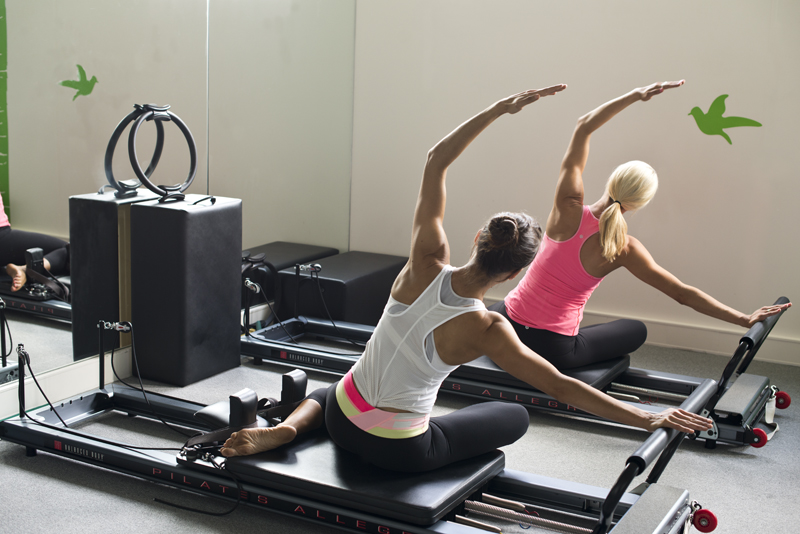How APPI Pilates can help your clients with back pain
I overhear people all the time in the Pilates studio/ gym I go to, talking to their friends about how they started Pilates to help with their back pain. The message is out there, with more and more lay people understanding the benefits. But is any sort of Pilates good for low back pain? Certainly, the classes I attend are great, good instructors, sensible movements, options to regress are given, but would I recommend a client goes there to help them manage their back pain?
Movement is great for back pain, Pilates is movement but attending a fitness focussed Pilates class, even a well taught one is not where I would be starting with clients with low back pain.
In the reformer class, I attend, there are up to 20 people on reformer beds - some complete beginners, some intermediate as well as advanced clients, there are always pregnant women in the class too. The teachers always are very responsible and ask if anyone is injured or pregnant, however; none of the teachers there are qualified in injury management..... We routinely do plank holds, exercises in double tabletop and loaded movements in prone to name a few. With good technique and experience, these exercises are fantastic, however, if you have never attended a Pilates class before, I would question your ability to execute these movements with good technique. If on top of being a beginner, you attend the class to help with your low back pain (because you heard Pilates was great for back pain and improving posture), and you attempt these exercises with minimal cueing and supervision (because there 20 people in the class with one teacher) is it going to do you much good?
I would argue for Pilates to be safe and effective, even if you do not have any pathology, you should be taught the foundations before being allowed into a mixed level class on reformers. If you have any pathology then you should be doing 1:1 sessions first to ensure that your technique is sound and you are not falling into a movement pattern that will do you more harm than good. It's impossible to observe an individual closely if there are 20 people in a class, and injured clients need close supervision. This is the advantage of APPI Pilates - it's a clinical Pilates programme designed for not only people with low back pain but anyone wanting to experience the benefits of Pilates.
How is APPI Pilates different? It's a graded approach to Pilates - there are progressions and a methodology behind what order you teach the movements in and how you progress your clients. If you have low back pain, for example, you would not start your Pilates session with a plank hold and an abdominal exercises in double table top - you would learn the foundation first - become aware of your body and the difference between a safe position and a position that would place undesirable load through your back. Would you learn higher level movements? Absolutely. When your body was trained and you had the adequate technique and control to execute the advanced repertoire safely. We definitely want to promote fitness and strength to our clients, we have to prepare them for the load they will incur in life, work and recreational sport. It would be irresponsible to not progress these clients beyond the very low load "physio rehab" exercises that they probably start with. But those Pilates foundations must be taught and progressed appropriately. APPI Pilates offers a sound repertoire of movements from low to high load and a method in which to progress your clients so they can eventually safely return to that Pilates class at their gym, empowered with knowledge and strong foundations to move safely.
Watch a short clip below on Leg pull in prone Level 1 from APPI Pilates Matwork Level 1.
View our range of APPI Pilates training courses HERE!
